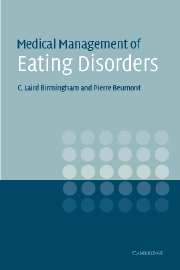Book contents
- Frontmatter
- Contents
- List of color plates
- List of contributors
- List of abbreviations
- Introduction
- PART I THE MEDICAL PERSPECTIVE
- 1 Definitions and epidemiology
- 2 The behavioral disorders
- 3 History, examination, and investigations
- 4 Medical manifestations by system
- 5 The clinician's response to common physical complaints
- PART II TREATMENT
- PART III SPECIAL ISSUES
- PART IV THE PSYCHIATRIC AND PSYCHOLOGICAL PERSPECTIVE
- PART V AREAS OF SPECIAL INTEREST
- Bibliography
- Index
- Plate section
1 - Definitions and epidemiology
Published online by Cambridge University Press: 18 December 2009
- Frontmatter
- Contents
- List of color plates
- List of contributors
- List of abbreviations
- Introduction
- PART I THE MEDICAL PERSPECTIVE
- 1 Definitions and epidemiology
- 2 The behavioral disorders
- 3 History, examination, and investigations
- 4 Medical manifestations by system
- 5 The clinician's response to common physical complaints
- PART II TREATMENT
- PART III SPECIAL ISSUES
- PART IV THE PSYCHIATRIC AND PSYCHOLOGICAL PERSPECTIVE
- PART V AREAS OF SPECIAL INTEREST
- Bibliography
- Index
- Plate section
Summary
Nutritional disease and disordered eating
Disordered eating behavior is a common cause of nutritional disorder. The term is used to indicate those instances in which the nutritional disturbance arises from the person's eating behavior rather than from physical or socioeconomic factors. Fasting for religious reasons or as a means of political manipulation are examples of the latter; only rarely do they cause major problems. In many countries, overeating has become the most common form of disordered eating, and its nutritional consequence, obesity, is a major problem area for public health. Disordered eating is not seen as an illness per se, and the response of health workers is to provide nutritional education and to encourage motivation in changing eating practices. Unfortunately, these efforts are often unsuccessful, and insufficient sympathy and assistance are available for those people whose eating is disordered.
Overweight and obesity
Overweight means that weight is higher than “normal,” where “normal” may relate to a population norm or to the likelihood of disease. However, the excess weight may be due to excess fluid, muscle, feces, urine, clothing, intra-abdominal fluid, or pregnancy. “Obesity,” on the other hand, means there is an excess of body fat. This excess usually results from a combination of increased caloric intake and decreased activity. Obesity is one of the major health problems of the developed world and is becoming much more common in developing nations.
- Type
- Chapter
- Information
- Medical Management of Eating DisordersA Practical Handbook for Healthcare Professionals, pp. 7 - 18Publisher: Cambridge University PressPrint publication year: 2004



